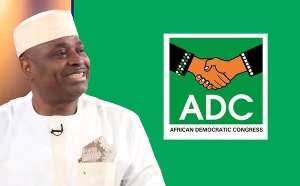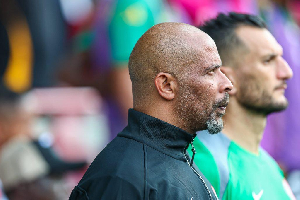Business News of Sunday, 28 September 2025
Source: www.punchng.com
W’Bank to approve $750m loans to Nigeria Tuesday
The World Bank is expected to approve two major loans totaling $750m for Nigeria on Tuesday, September 30, 2025, according to information available on the bank’s official website. The loans aim to strengthen Nigeria’s healthcare security and expand access to climate-resilient digital infrastructure, particularly in underserved areas.
The financing package includes a $500m facility for the Building Resilient Digital Infrastructure for Growth in Nigeria (BRIDGE) project and a $250m loan under the Health Security Programme in Western and Central Africa, Nigeria – Phase II.
Both projects are currently listed in the World Bank’s active pipeline, with negotiations at advanced stages ahead of the scheduled board approval.
The BRIDGE project, spearheaded by the Federal Ministry of Communications, Innovation and Digital Economy, is designed to significantly boost broadband access across unserved and underserved areas of Nigeria. With a total cost estimated at $1.6bn, the World Bank will contribute $500m via a concessional credit from the International Development Association, while the remaining funds will come from private sector sources.
The programme targets the development of climate-resilient broadband infrastructure that will bridge structural gaps and bring internet access to rural and remote communities. It is expected to play a critical role in Nigeria’s ambition to become a digitally inclusive economy.
Communications and Digital Economy Minister, Dr Bosun Tijani, announced in August that Nigeria is moving closer to building one of the largest digital backbones in the developing world. He unveiled the technical design for Project BRIDGE — a $2bn fibre-optic expansion initiative that will extend Nigeria’s broadband network from 35,000 to over 125,000 kilometres.
The rollout plan includes seven main fibre rings connecting Nigeria’s six geopolitical zones with Lagos, along with 37 city-level fibre loops, 77 regional networks, and multiple edge data centres.
“Over the past two years, we have worked tirelessly on what is arguably the most ambitious and foundational digital infrastructure project in Nigeria’s history, Project BRIDGE,” Dr Tijani said.
The implementation of BRIDGE will be carried out through a Special Purpose Vehicle, with the Federal Government holding a 51 per cent equity stake, and private investors holding 49 per cent. Apart from the World Bank’s contribution, funding commitments include $200m from the African Development Bank, along with anticipated investments from the European Investment Bank, Islamic Development Bank, and various private sector players.
The second loan, worth $250m, is designated for the Health Security Program – Phase II, part of a broader regional initiative involving countries in West and Central Africa.
Nigeria’s portion of the programme will be coordinated by the Nigeria Centre for Disease Control and Prevention and supervised by the Federal Ministry of Finance. The objective is to improve Nigeria’s ability to prevent, detect, and respond to public health emergencies and pandemics.
According to the World Bank, the programme seeks to strengthen regional health surveillance systems and emergency response mechanisms, particularly in the aftermath of lessons learned from the COVID-19 pandemic and other recent health crises.
Nigeria has seen a surge in World Bank funding in recent years. According to data from the bank’s website, a total of $8.4bn in fresh loans has been approved for Nigeria between June 2023 and August 2025. These funds span 15 projects across energy, education, health, rural development, and governance sectors.
The breakdown includes $6.5bn in concessional loans from the International Development Association and $1.95bn in loans from the International Bank for Reconstruction and Development, which lends on more commercial terms to creditworthy countries.
While these loans are generally regarded as concessional, economists have expressed concerns about Nigeria’s rising external debt, particularly with revenue mobilisation still lagging behind projections.
Lagos-based economist, Adewale Abimbola, noted that while borrowing from multilateral institutions like the World Bank can be beneficial, effectiveness depends on how funds are deployed.
“Borrowing isn’t inherently bad,” Abimbola said. “If it’s concessionary and tied to viable, revenue-generating projects, then it’s a smart move. The key is in implementation and accountability.”
He added that such projects must demonstrate long-term economic benefits, including growth stimulation, improved services, and strengthened public sector performance.
However, development economist and CEO of CSA Advisory, Dr Aliyu Ilias, offered a more critical perspective. He argued that Nigeria’s debt trajectory has become concerning, particularly as it continues to climb despite reported increases in government revenue.
“When former President Muhammadu Buhari left office, the debt stock was around N87tn. Now, it’s approximately N149tn, and projections suggest it could hit N180tn,” Ilias warned.
He noted that revenue from fuel subsidy removal and increased collections by the Federal Inland Revenue Service and Nigeria Customs Service should have reduced the need for borrowing.
“Why are we borrowing more when we’re supposedly earning more?” he questioned. “It’s clear the debt burden is crowding out funding for essential public services and capital projects.”
Ilias cautioned that rising debt service costs could hinder Nigeria’s economic growth by reducing funds available for infrastructure, education, and job creation. He also warned of inflationary pressures and worsening foreign exchange volatility.
Data from the Debt Management Office showed Nigeria’s total debt to the World Bank reached $18.23bn as of March 31, 2025 — up from $17.81bn in December 2024. This includes $16.99bn from the IDA and $1.24bn from the IBRD.
The World Bank Group now accounts for about 39.7 per cent of Nigeria’s external debt stock, which stood at $45.98 billion in Q1 2025. This represents a steady increase from 36.4 per cent at the end of 2023.
Furthermore, the institution constitutes over 81 per cent of Nigeria’s total multilateral debt, highlighting its central role in the country’s financing strategy.












